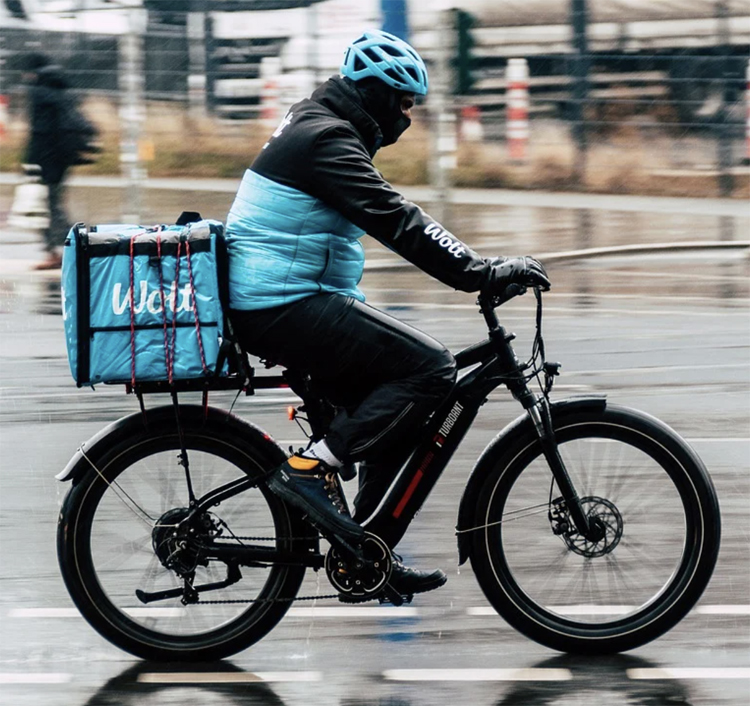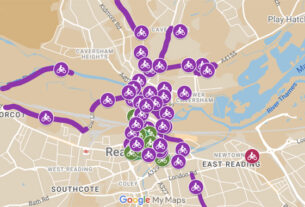For this issue of Cycle Reading where we are looking at the burgeoning food courier business, we asked an experienced delivery rider for their thoughts.
Michael has been a delivery rider for about 10 years, dating back to the time when Deliveroo first launched in Reading. We asked him about working for a delivery platform, what he thought work wells, and what doesn’t.
One of Michael’s first observations was how hourly earnings have reduced compared to when he first started. Whilst the minimum wage has risen over time, this does not apply to the gig economy where people are self-employed.
There may be several reasons why this has happened; one reason could potentially be the supply of labour in an environment where there is little regulation.
Being a delivery courier is a relatively accessible form of employment for recent immigrants, and Michael suspected the delivery platforms may be able to exploit this fact, alongside the lack of workers’ rights in the gig economy, to drive down their costs.
Of course being self-employed, ie the gig economy, means you can work when it’s convenient to you and you only need to accept the deliveries that you want to do.
Michael felt that the delivery apps in themselves function quite well. The apps have their own algorithms for offering deliveries to couriers, and the allocating and acceptance of deliveries is itself a market place, which depends on the delivery price offered and who is willing to accept it.
However, this market dynamic gets more complex when you consider that couriers may be running multiple delivery apps simultaneously (with the potential to overcommit on deliveries).
For more detail on how the apps offer and price their deliveries see the separate article on A Man Called Claud’s experiences.
Delivery couriers are required to sign an agreement with the delivery platform company. As an example, the Just Eat agreement states:
“Any vehicle you use to undertake Deliveries must be roadworthy and compliant with UK law,” and goes on to state: “You agree to perform the Delivery with a reasonable level of care, skill and diligence and in compliance with all traffic, health and safety laws, rules and regulations and with the Just Eat Courier Community Guide.“
Whilst the legal requirements are nominally there, in a gig economy environment there is little or no monitoring or enforcement to ensure compliance. What’s more, the courier who signed the agreement can get substitutes to actually do the deliveries for them.
When Michael first started out as a delivery rider they were pretty much all cyclists and the illegal motorised bikes, which have only become prevalent this decade, were not present on our roads.
At that time he was provided with all the delivery gear such as uniform, lights, battery power banks, etc. Nowadays the delivery platforms keep themselves at arm’s length from the delivery transport mode; Just Eat’s agreement with their delivery couriers states: “You are free to undertake a Delivery in any way you deem suitable…“
Having said that, the platforms generally provide guidance on how to responsibly use delivery transport, including safe and legal cycling and what constitutes a legal e-bike. But provision of any training seems to be beyond the remit of the delivery platforms.
Michael felt the platforms could make more effort to manage their couriers and invest more in training the delivery riders/drivers, with some form of online testing to at least attempt to ensure competence. Michael noted that there was a high rate of turnover of couriers in a gig economy and that this would not encourage the platforms to invest in the couriers.
Another factor may be that the more the platforms ‘manage’ their delivery couriers the more likely they would be considered as being employed by the delivery platform, with all the rights that go with employment.
Keith Elliott
RCC Secretary



